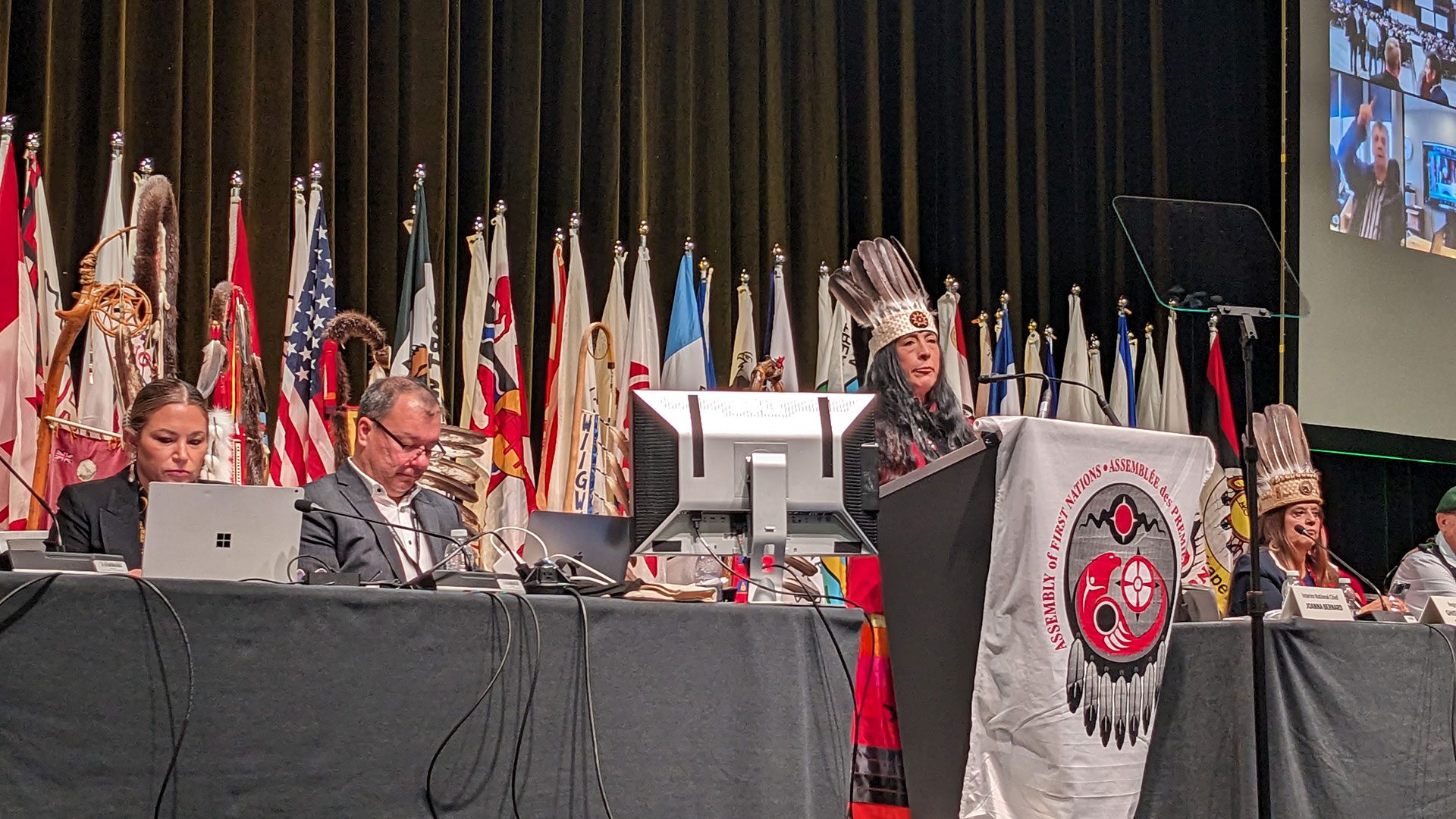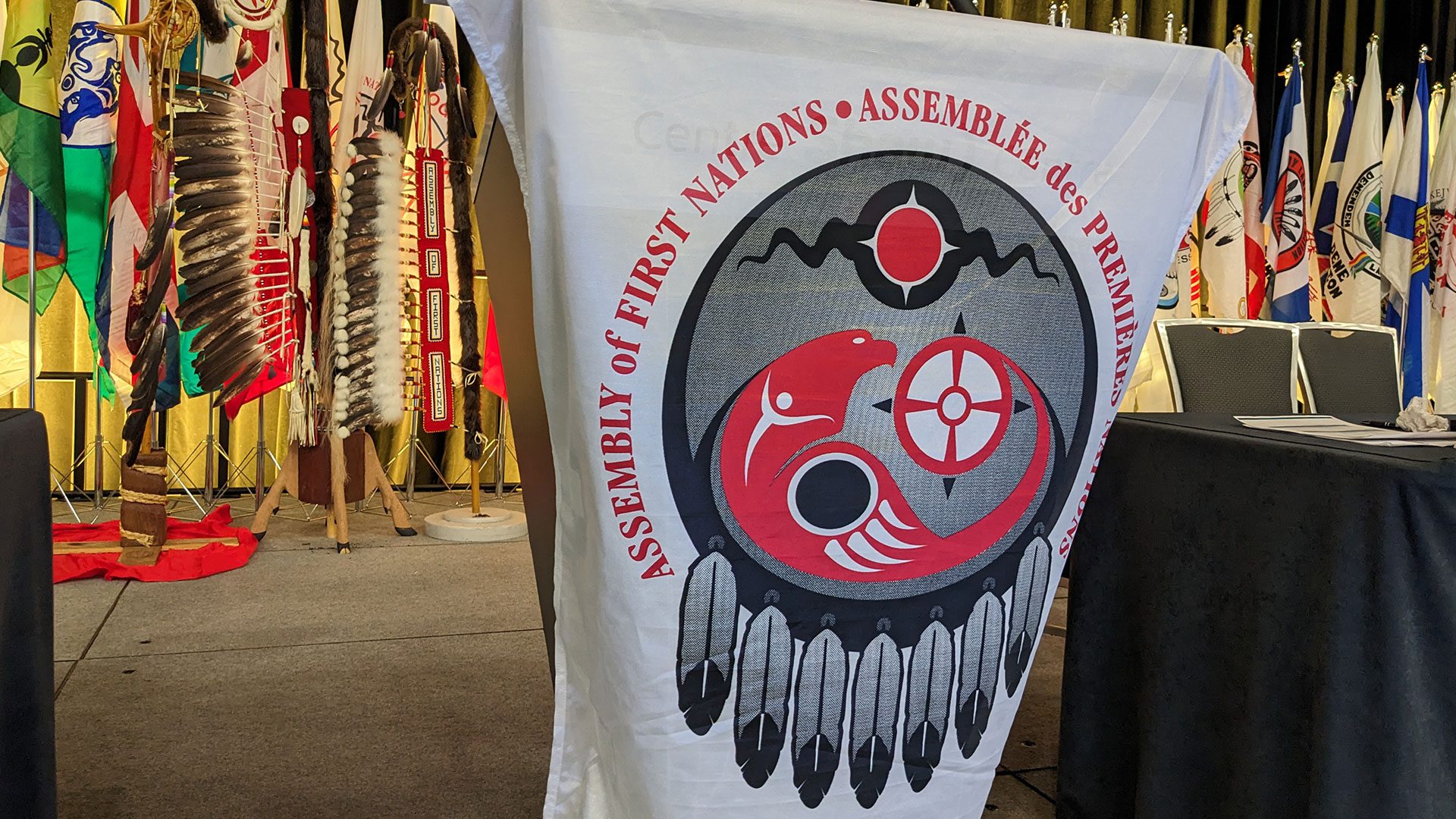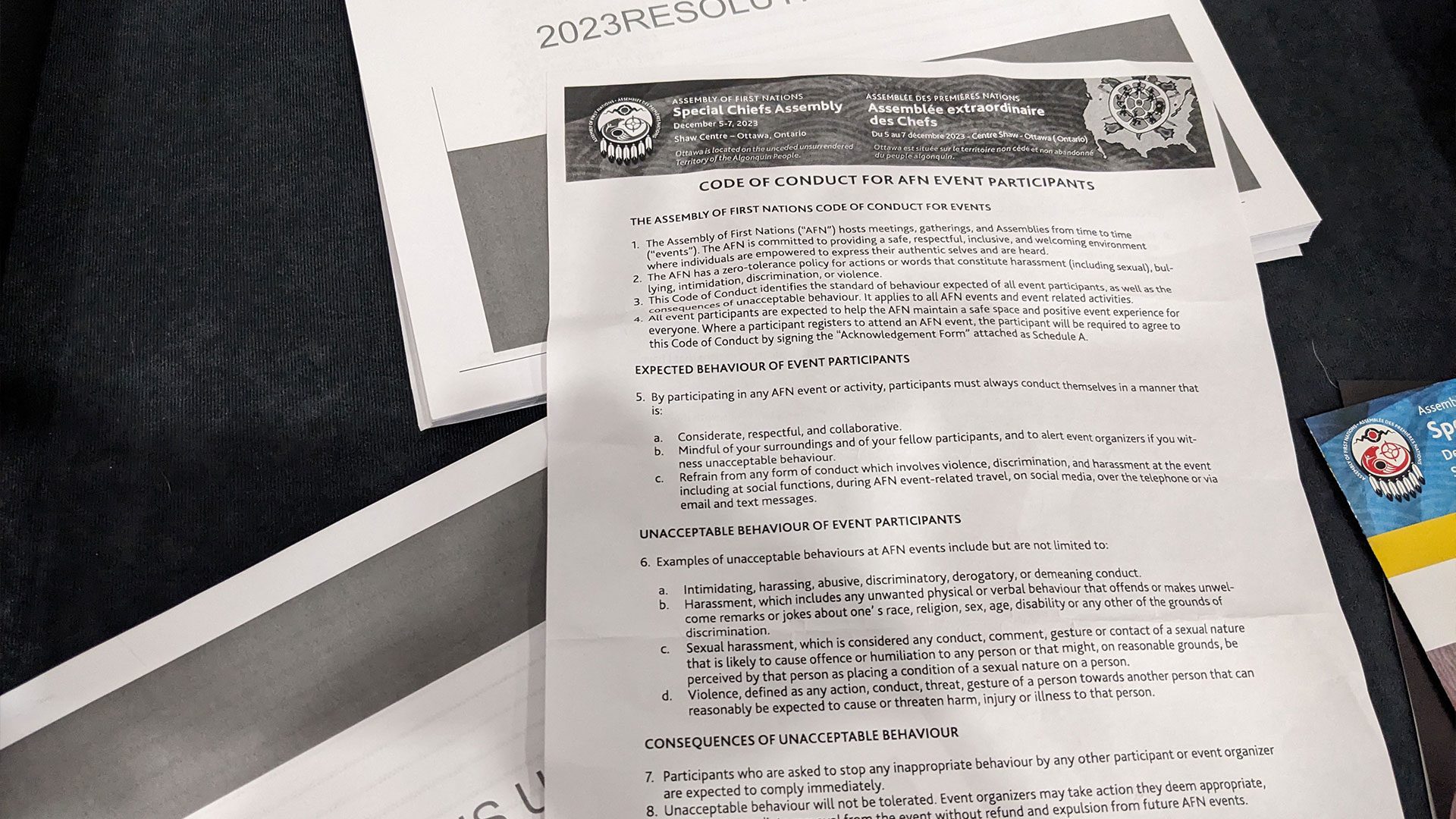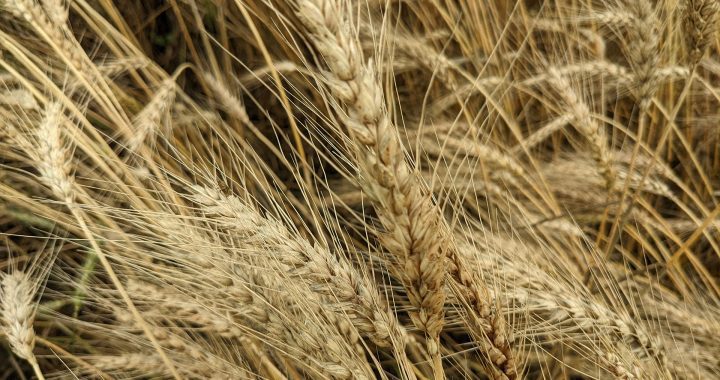Leah George-Wilson digs through her knapsack just outside the main doors to where chiefs and proxies are meeting for the Assembly of First Nations Special Chiefs Assembly in downtown Ottawa.
She fishes out a piece of paper and holds it out. Some, but not all, participants were asked to sign this code of conduct outlining the behavior that won’t be tolerated at the assembly.
“I thought that was great. What the expected behavior is. What unacceptable behavior is and what the consequences are,” said George-Wilson, a proxy for Tsleil-Waututh Nation from North Vancouver reading over the two-sided piece of paper. “I think it’s really important.”
Many of the attendees at the AFN’s special chiefs assembly are being asked to sign a code of conduct agreement. Photo: APTN.
Acceptable behavior includes being “considerate, respectful and collaborative.” The unacceptable list said that any “intimidating, harassing, abusive, discriminating, derogatory or demeaning conduct,” won’t be tolerated and may result in “immediate removal” from the assembly.
“It’s a start,” said George-Wilson. “It’s a good first step. We actually saw action on it even though we have an interim national chief so I think it’s a good start. When we have a national chief in place I’m sure we’ll have stable support.”
In July a report was released that looked into gender-based violence at the AFN. According to the findings of the three-member panel, staff members came forward with a long list of complaints including “lateral violence; abuse of power, position, and authority; abuse of technology, including cyber-bullying and sexting,” There were also complaints of “verbal harassment, sexualized harassment and bullying, including unwelcome comments and invitations and discrimination based on gender and sexual orientation.”
Recommendations from the review include mandatory training, a zero-tolerance policy at AFN events; establishing an Independent Office for Complaints and Investigations and decolonizing the organization as a whole.
“The AFN cannot end lateral violence, bullying, sexualized violence, and discrimination within the organization until the colonial and intergenerational trauma that underlies these behaviours is fully recognized and addressed,” said the report.
Interim National Chief Joanna Bernard said there’s “still a lot of work still to be done.”
$10 million forensic audit?

The main event at this year’s special chiefs assembly is the election of a new national chief. Six candidates have put their names forward as the replacement for RoseAnne Archibald who was ousted in a coup by the organization’s executive committee made up of regional chiefs from across the country. One of their own, Cindy Woodhouse, is running to replace Archibald.
One issue that isn’t clear is the direction the AFN will take to undertake a forensic audit of itself as proposed by Archibald and supported by chiefs in assembly.
Bernard said the AFN is going to hire someone to “review the last ten years” of the organization to see if a forensic audit is warranted.
“Just because there’s an allegation doesn’t mean it’s true and should we spend $10 million for ten years of audits because of an allegation,” Bernard said.
The interim chief said she’s estimating the cost based on what she was told it cost a small community to conduct a similar audit which came out to $1 million.
“Now that the new national chief is coming in they will be focusing on bringing everybody back together so the work can get done,” she said.
A company hasn’t been hired yet to review the AFN’s books and Bernard said she’s not sure when that will happen. “The executive said that’s easy to vote for now it [the audit] ‘You got $10 million?’ It’s easy, right? We’re not ignoring anything. We’re taking all the chiefs’ resolutions seriously and working very hard.”
Election of new national chief

The election of the organization’s next national chief comes as members look for a reset, following a turbulent period when their internal politics were as high-profile as their advocacy for some 600 First Nations.
A third-party independent review concluded some of Archibald’s behaviour amounted to harassment. It also found she breached internal policies by retaliating against complainants and failing to maintain confidentiality about the matter.
Archibald denied those allegations, and her supporters maintain she was removed from the post for trying to change the organization’s status quo.
Of the 231 chiefs [there are more than 600 members of the AFN], who took part in the special assembly, 71 per cent voted to remove her.
During this week’s assembly, six candidates will try and convince an even bigger group of chiefs and their proxies why they are best suited to lead the organization.
Reginald Bellerose, chair of the Saskatchewan Indian Gaming Authority and the Saskatchewan Indian Training Assessment Group, is on the list, along with Craig Makinaw, a former chief of Ermineskin Cree Nation and ex-AFN Alberta regional chief.
Also running are Sheila North, a former grand chief of Manitoba Keewatinowi Okimakanak, and David Pratt, vice-chief for the Federation of Sovereign Indigenous Nations.
Rounding out the list are Dean Sayers, a longtime Batchewana First Nation chief, and Cindy Woodhouse, the assembly’s current regional chief for Manitoba.
According to the assembly’s election procedures, each member nation has one vote, which can be cast either by the chief or by a registered proxy.
The winner of the election is the candidate that receives more than 60 per cent of the votes.
If no candidate receives more than 60 per cent of the vote, the candidate with the lowest number of votes is eliminated and additional rounds of voting ensue.
Immediately after the election, the new national chief is expected to participate in an oath of office ceremony.
While chiefs are gathering to elect their new leader, they’re also using the special assembly as a means to advance their other interests.
A hefty package of resolutions up for discussion includes concerns around child welfare, health care and homelessness.
Chief Lance Haymond of Kebaowek First Nation sought support on Tuesday to approve and implement a national First Nations homelessness action plan.
His resolution calls for the assembly to advocate for “long term, sustained, needs-based funding options for First Nations,” so that they can deliver their own programs and services no matter the particular constraints they may be facing.
That resolution passed on Tuesday afternoon.
The 42 draft resolutions also include one, from Chief Allan Polchies of St. Mary’s First Nation, that would reaffirm the traditional roles of two-spirit and gender-diverse peoples within First Nations.
It calls on the AFN to reject government policies that would affect people with those identities, and seeks adequate funding and resources for an advisory council focused on the issue.
The election for the new national chief begins Wednesday morning with the first ballot results to be released later in the afternoon.
With files from Kathleen Martens and the Canadian Press.










